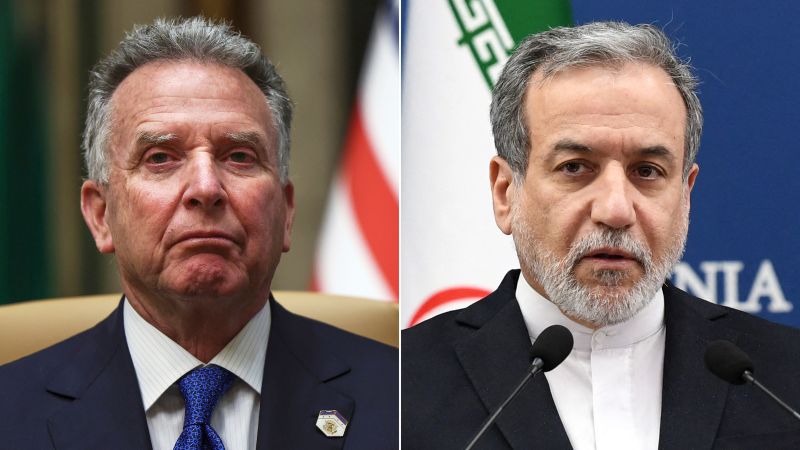On Saturday, high-level negotiations concerning Iran’s nuclear program are set to take place in Rome, with delegations from the United States and Iran involved in crucial discussions. This second round of talks comes on the heels of a previous meeting held in Muscat a week earlier. While it’s clear that the talks are gathering momentum, there remains a sense of caution among international observers about the potential for meaningful diplomatic progress.
The Italian capital has been chosen as the venue for these discussions, with Oman acting as a mediator once again. The U.S. team is spearheaded by Special Envoy Steve Witkoff, while the Iranian delegation is led by Foreign Minister Abbas Araghchi. The stakes are remarkably high, and these discussions have been preceded by a heightened level of diplomatic activities, indicating that both allies and rivals are keen on understanding and potentially influencing the proceedings.
Recently, President Donald Trump expressed that immediate military action against Iran’s nuclear infrastructure is not currently on his agenda, though he acknowledged the latent threat posed by Iran’s capabilities. In a statement, he mentioned that he believes Iran has the potential to be a great nation and emphasized preferring diplomatic solutions over conflict. Trump’s remarks were made in response to a New York Times article suggesting he had dissuaded Israel from engaging in military action against Iran at this moment.
The atmosphere surrounding the upcoming talks has a significant undertone of political maneuvering. Witkoff’s activities prior to the meetings in Rome included a discreet discussion in Paris with Israeli leaders, such as Ron Dermer, the minister for strategic affairs, and Mossad director David Barnea. The Israeli government maintains a strong stance in favor of confrontational tactics against Iran, dismissing diplomatic approaches. Netanyahu’s office claimed that Israeli operations have been pivotal in preventing Iran from achieving a nuclear arsenal. U.S. intelligence agencies have warned of a potential Israeli strike against Iranian nuclear facilities, reinforcing the tense geopolitical climate.
In Paris, Witkoff was accompanied by Secretary of State Marco Rubio, where discussions extended to the pressing situation in Ukraine and simultaneously addressed the forthcoming Iran meeting involving the “E3” nations—France, Germany, and the United Kingdom. Rubio highlighted the urgency for European allies to make timely decisions regarding sanctions, especially given Iran’s non-compliance with existing agreements.
Amid these discussions, Witkoff expressed hope that constructive dialogue would continue and result in a sustainable resolution. He emphasized the desire for a peaceful conclusion to the current climate of tension surrounding Iran’s nuclear ambitions.
Moreover, Araghchi’s diplomatic overtures included a visit to Moscow, during which he leveraged support from Russian President Vladimir Putin and Foreign Minister Sergey Lavrov. The Iranian foreign minister expressed optimism regarding Russia’s role in any renewed agreement, indicating the multifaceted nature of the negotiations.
In conjunction with these diplomatic developments, Rafael Grossi, the head of the United Nations’ nuclear watchdog, has indicated the negotiations are at a critical juncture. He alerted that time is of the essence, especially in light of Iran’s significant uranium enrichment activities that have exceeded the agreed limits since the United States’ departure from the nuclear deal during Trump’s tenure.
Additionally, significant diplomatic strides have been made beyond U.S.-Iran relations, as Saudi Defense Minister Prince Khalid bin Salman Al Saud recently visited Tehran. This landmark visit represents one of the highest-level interactions between Saudi Arabia and Iran in decades, signaling a potential shift toward improved relations and efforts for regional de-escalation. However, there remains uncertainty regarding the outcome of the impending U.S. negotiations, with speculations about their unpredictability.
In summary, the Rome talks represent not only a key diplomatic opportunity regarding Iran’s nuclear program but also a broader indication of the complex interplay between regional actors and global powers. With the stakes high and the uncertainty surrounding outcomes prevalent, all eyes will be on the discussions leading into this pivotal diplomatic event.



